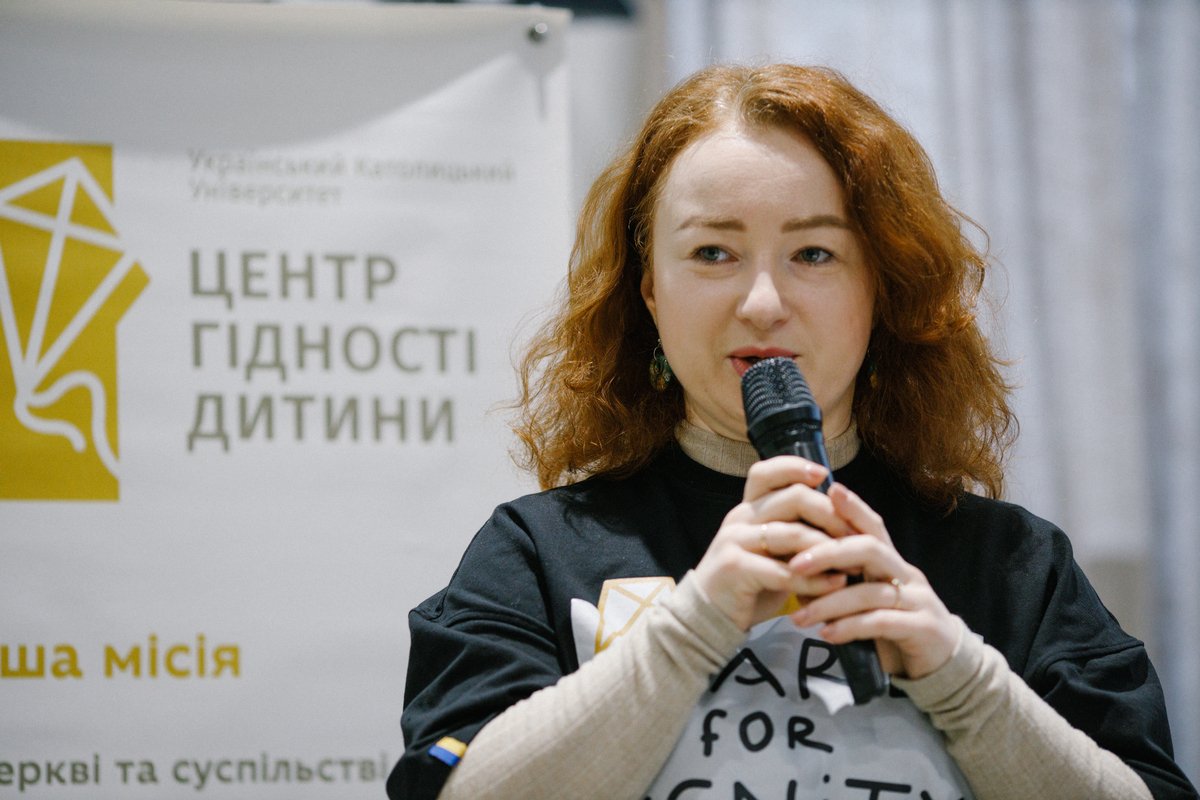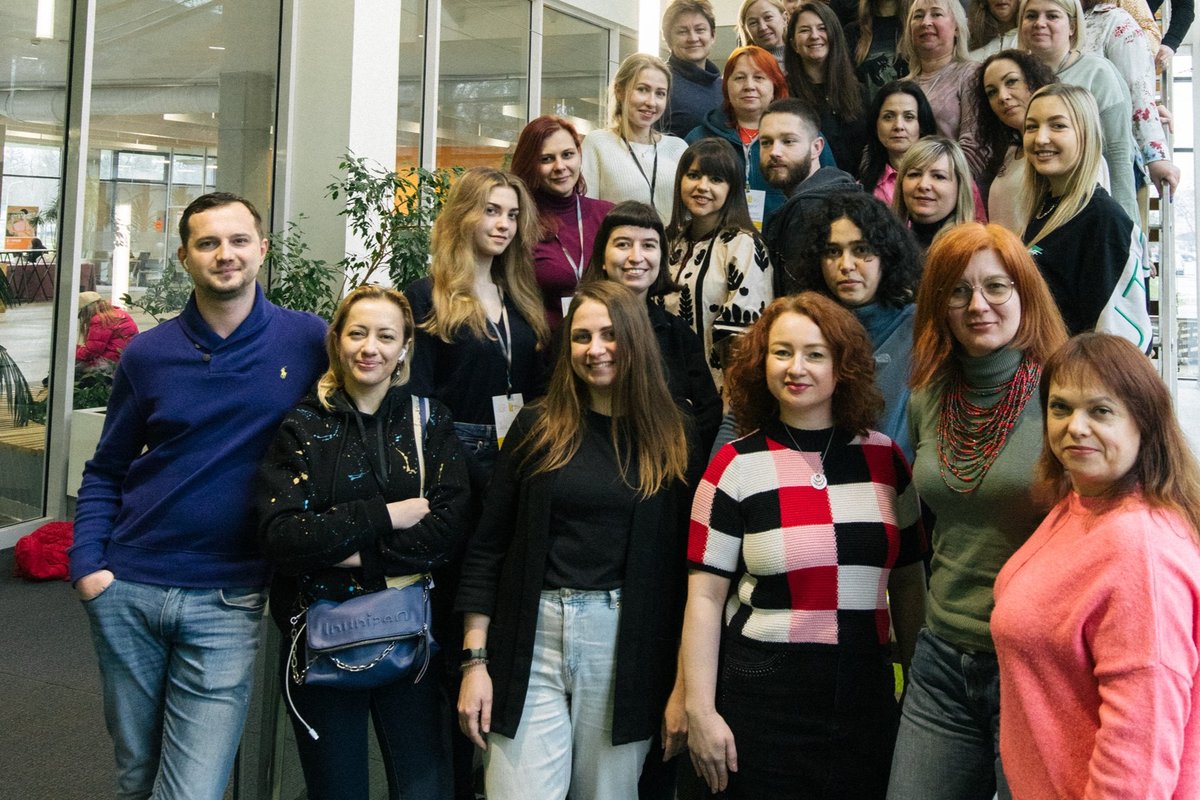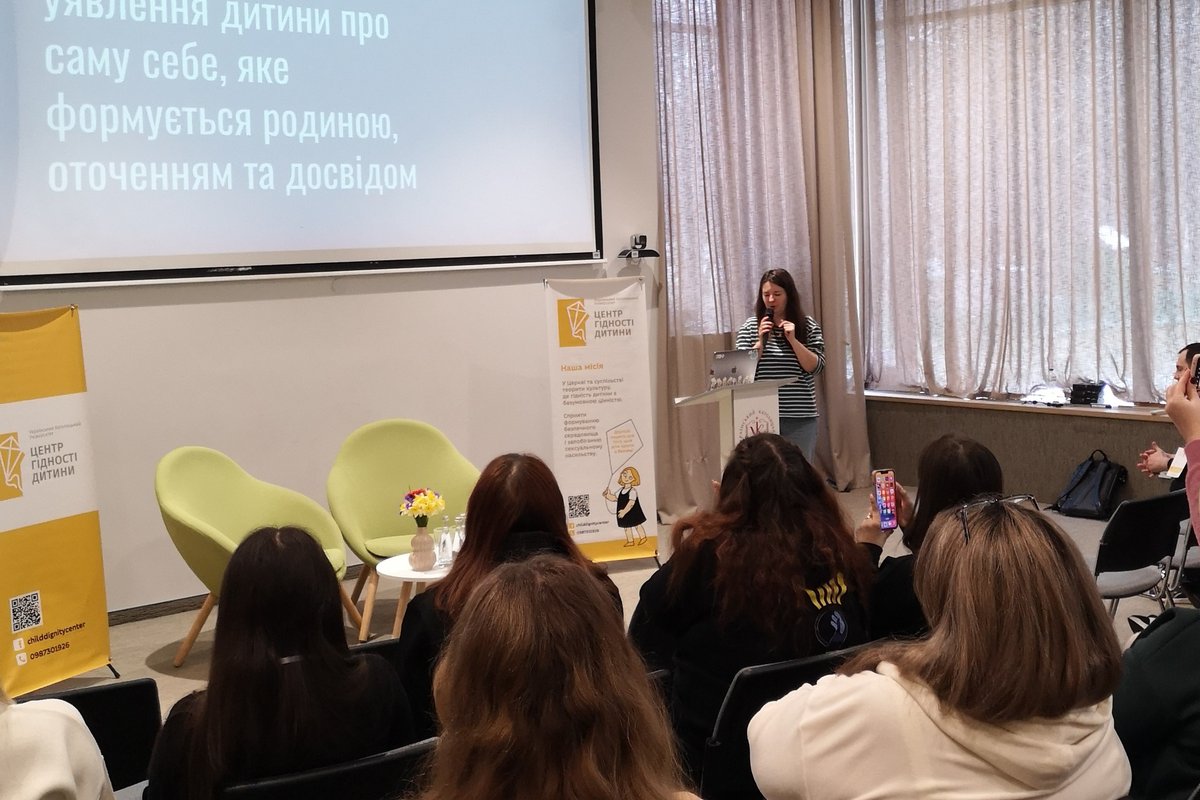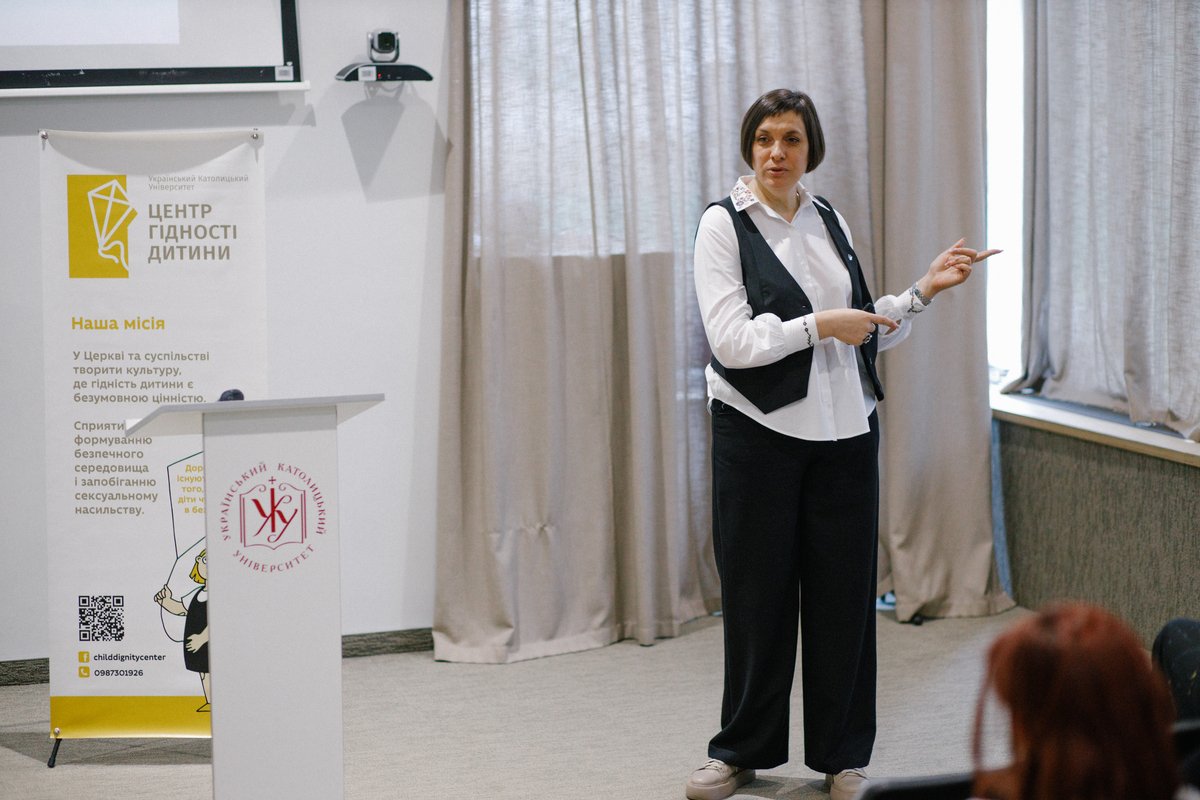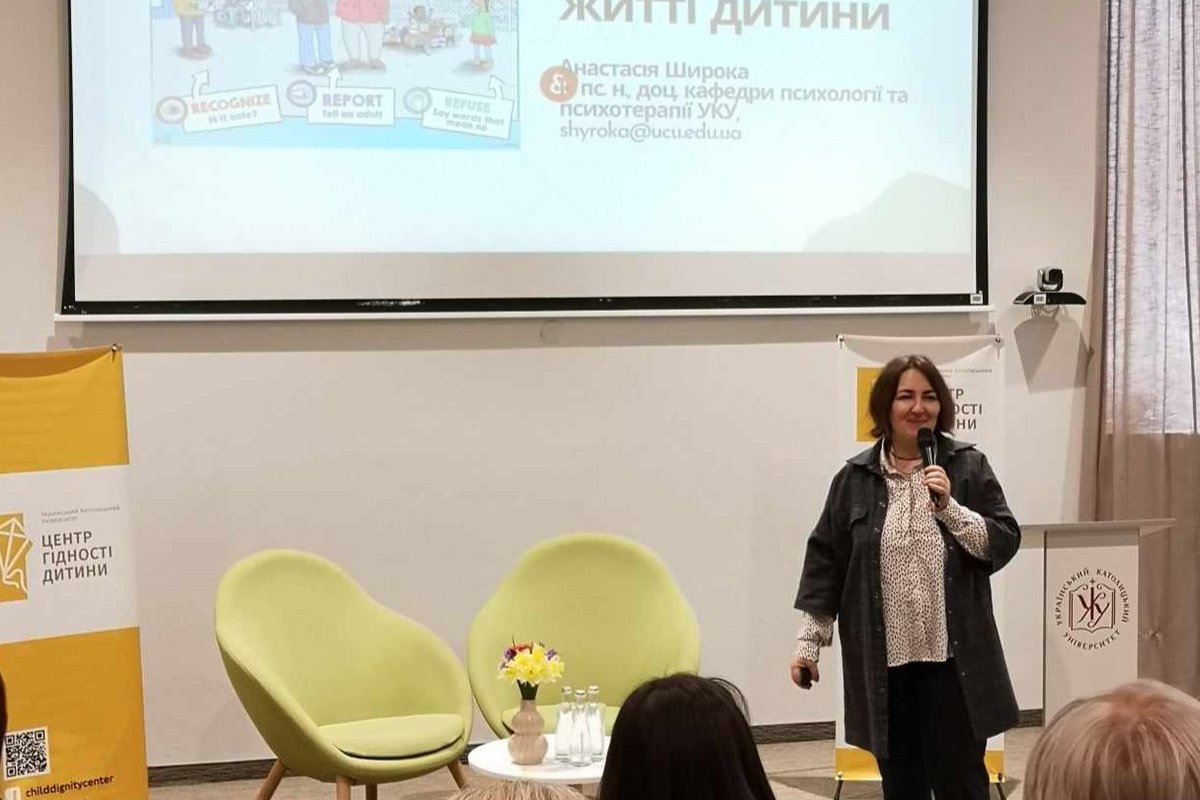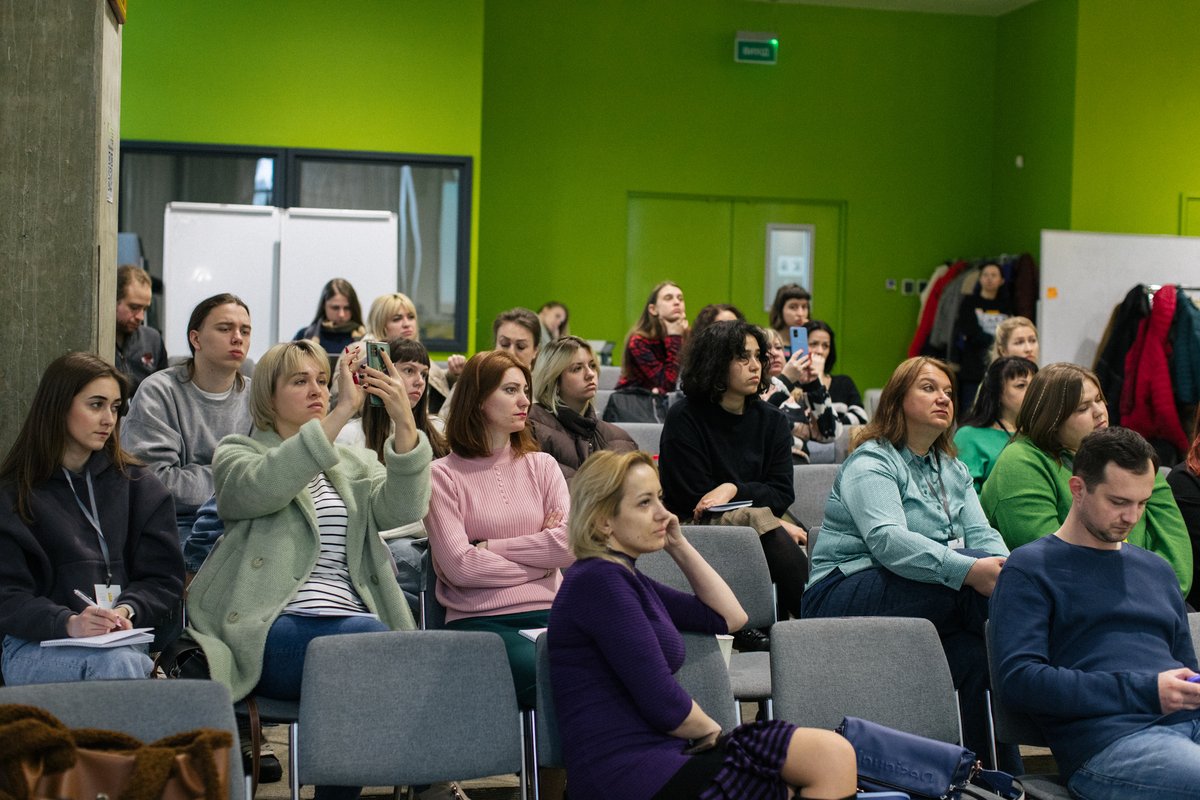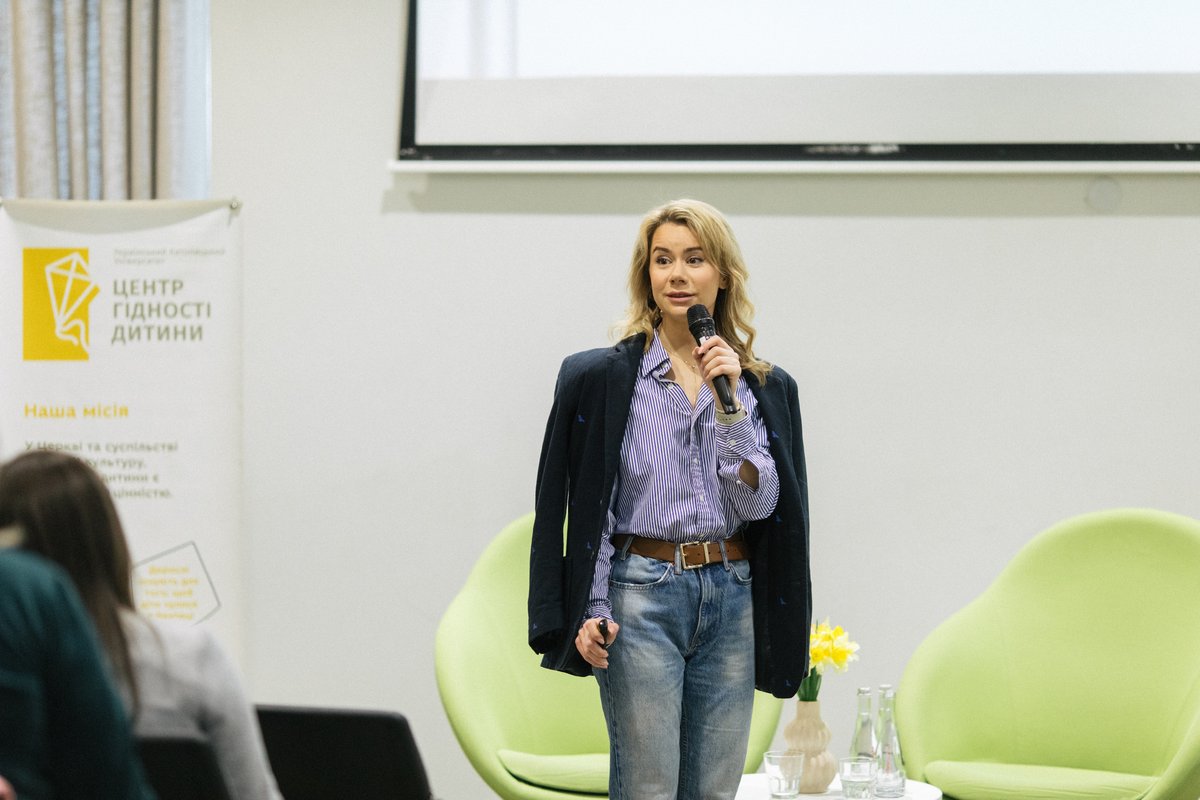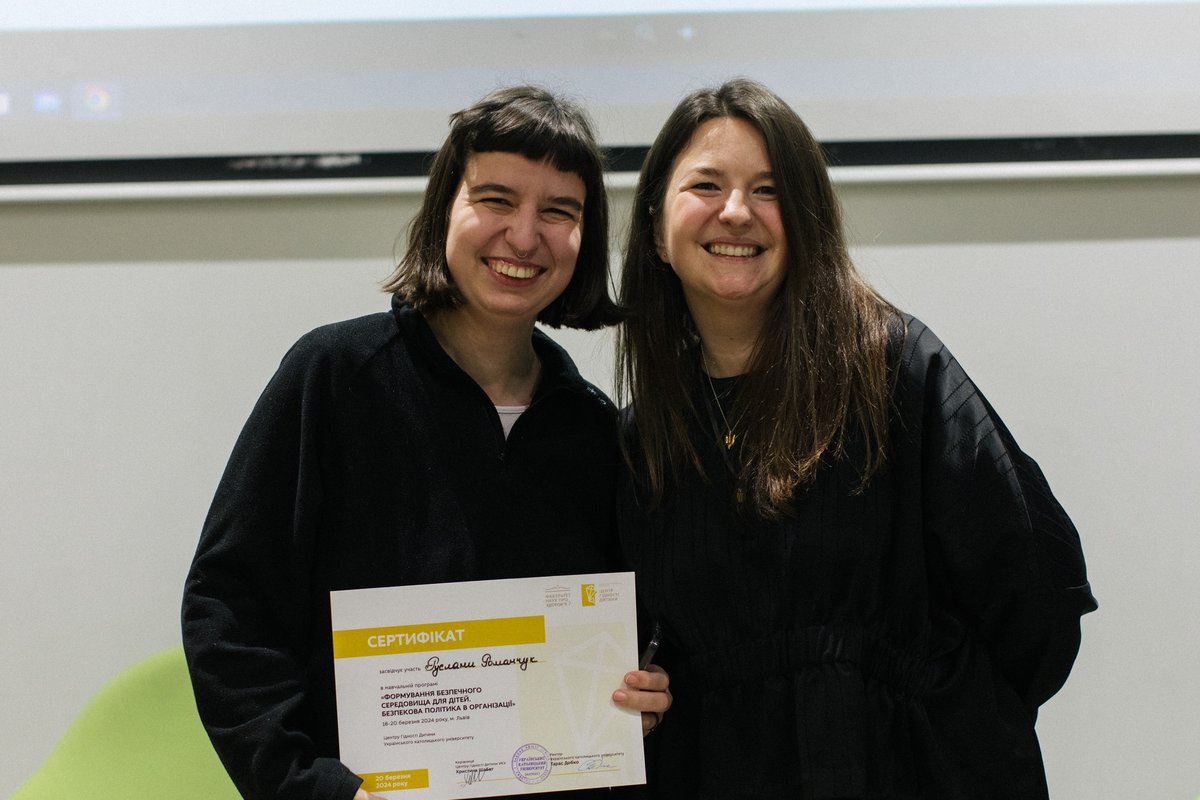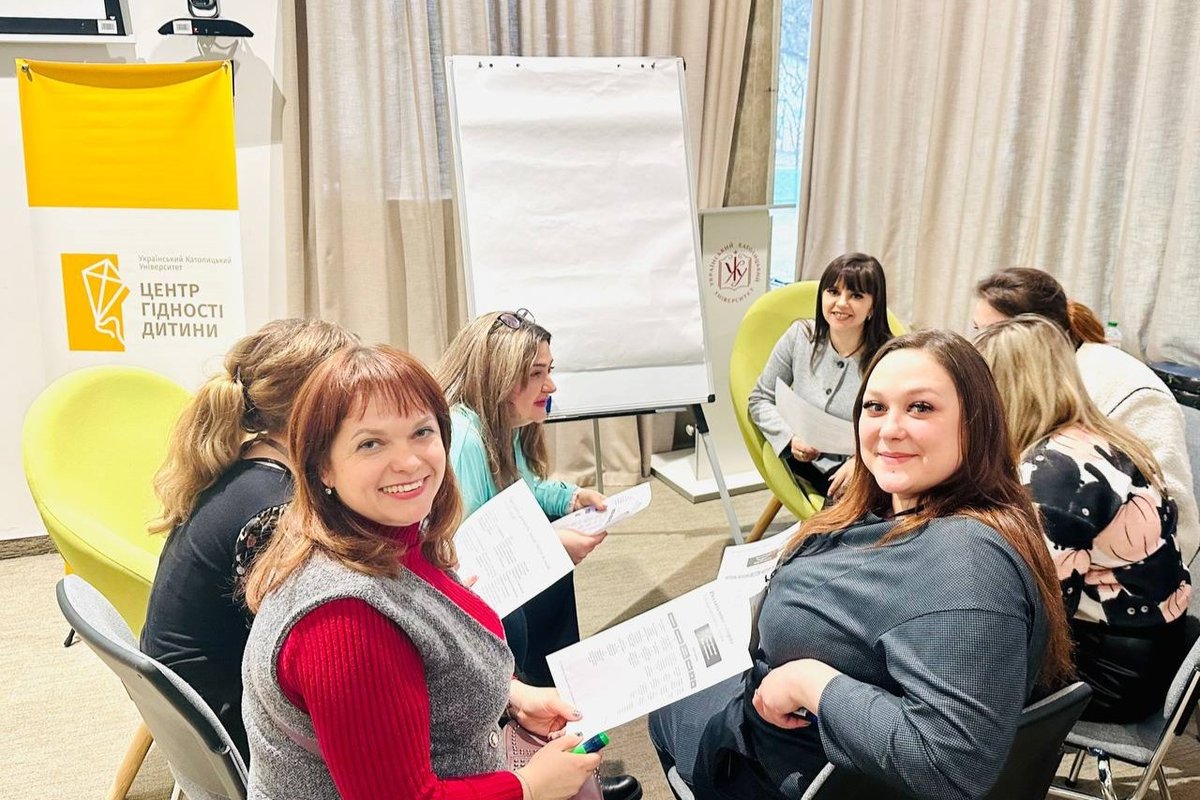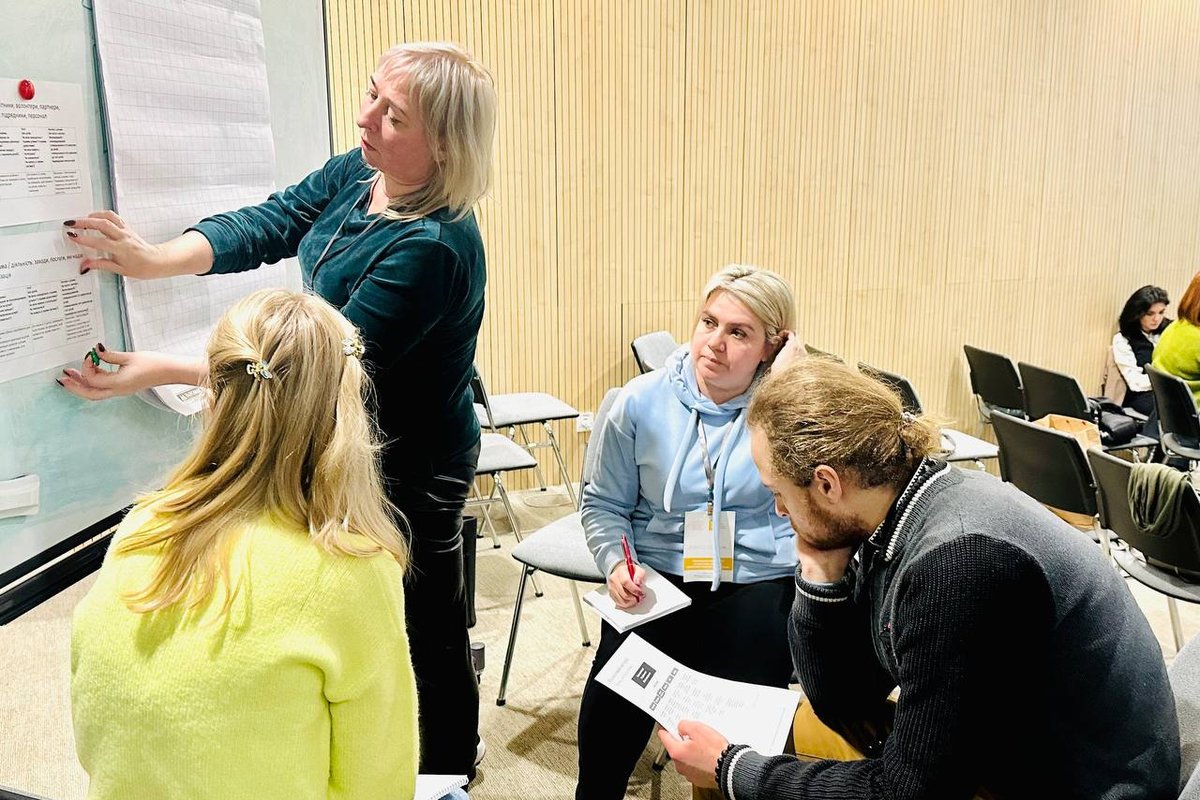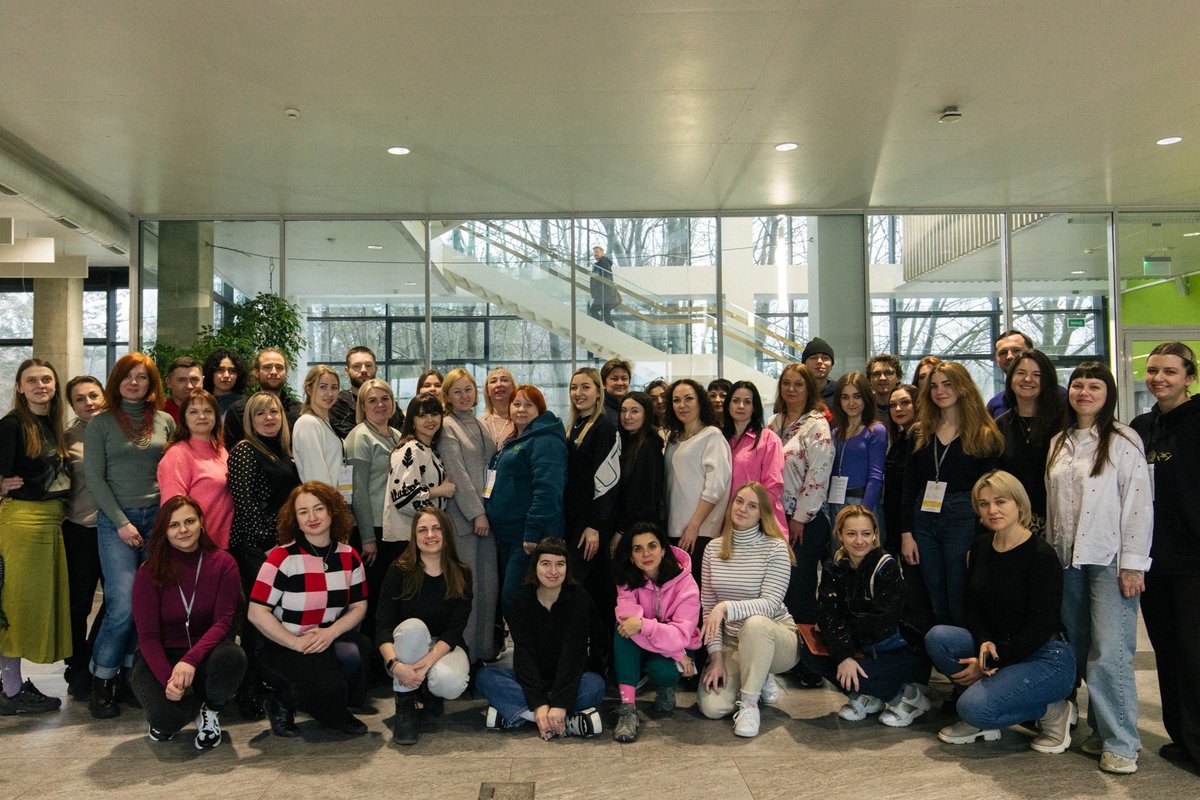UCU Center for Child Dignity Develops Certificate Program in Writing Security Policies
The program involved 17 civil society organizations from areas where the violent impact of the war is particularly pronounced - Kharkiv, Sumy, Dnipro, Zaporizhzhia, Kherson, Mykolaiv, Odesa, and Kramatorsk. The participating organizations work with children and families, including those with children with disabilities, and provide them with psychological support.
On March 18-20, 2024, at the Sheptytsky Center, participants discussed how to create an environment in which children are treated with dignity.
"It was three intense days of training that successfully combined theoretical and practical parts. As a result of the certificate program, each organization has to write a child protection policy and understand how to implement it in their activities. The experts of the Center for Child Dignity will continue to support them in this," says Natalia Tarnovska, head of projects and programs at the UCU Center for Child Dignity, who was responsible for the preparation and organization of the program.
Khrystyna Shabat, head of the Child Dignity Center, presented the results of a study by the Fama research agency and the Child Dignity Center entitled "Sexual Violence in Ukraine: From Awareness to Protection." According to her, the study shows that 23% of Ukrainians experienced sexual violence in childhood, and 4% were victims of rape.
Khrystyna Shabat also emphasized that the center's team is doing everything possible to ensure that every organization and institution implements child protection policies and is on the side of the child, his or her interests and dignity: "We want adults to respect the rights of the child, understand and use the mechanisms of child abuse prevention (safeguarding), and know how to respond competently to abuse and be able to help."
Larysa Gretchenko, a family and children's rights lawyer, mediator, and chair of the Family Law Committee of the Ukrainian National Bar Association, spoke about the legal aspects of protecting children's rights and her own experience in practice.
Anastasia Shyroka, deputy dean for international academic relations at UCU's Faculty of Health Sciences, associate professor of psychology and psychotherapy, emphasized the importance of a safe environment and safe adults in a child's life: "When we talk about violence against children, it is important to understand that the habit of hitting children exists longer than talks about children's rights, and the line between physical punishment and violence is quite blurred."
During the second and third days of the program, the participants reviewed examples of security policies in organizations and learned how to create them.
Yuliana Maslak, a child psychiatrist, cognitive behavioral therapy therapist, and lecturer of the master's program "Clinical Psychology with the Basics of Cognitive Behavioral Therapy," spoke about childhood trauma, its causes, and consequences: "We have to build relationships with children on trust. After all, children will be able to tell everything difficult, incomprehensible, and hurtful only to those adults they trust."
Ivanka Rudakevych, Project and Program Manager at the Center for the Dignity of the Child, Institute of Anthropology, Pontifical Gregorian University, conducted practical workshops during which program participants worked in groups to identify the risks of child abuse in their organizations, look for ways to prevent them, and share their own experiences.
The certificate program on writing safety policies for civic activists was supported by the NGO Resource Center, which works to strengthen the capacity of civil society, develop and support non-governmental organizations, and with the support of the Swiss Agency for Development and Cooperation of the Swiss Federal Department of Foreign Affairs.
The program "Creating a Safe Environment for Children. Security Policy in the Organization" was approved by the Academic Council of the UCU Faculty of Health Sciences and is designed for 45 academic hours, which is equal to 1.5 ECTS credits.
The participants of the first set were civil society organizations from the East and South of Ukraine: "Base YA", CO "Charity Foundation Winds of Change", CF "There are no other people's children. UA", NGO "Healthy Society", NGO "International Center "The World through the Eyes of Children", NGO "Light of Culture", NGO "Shining Hope", NGO "Ukrainian Women", NGO "Center for Social Partnership "Perspective", NGO "Aegis Zaporizhzhia", NGO "League of Modern Women", NGO "Green Land", NGO "Ukrprostir", NGO "VOTUM Center", NGO Resource Center, and CF "Island of Good".
